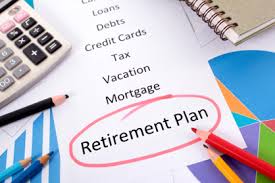 5 Tips From the Pros on How to Save More for Retirement
5 Tips From the Pros on How to Save More for Retirement
Ask yourself, “Am I saving enough for retirement?” If the answer is “no,” you’re not alone. Studies show most people don’t have enough in savings when it comes time to leave the workforce. While young adults with poor saving behaviors miss out on the benefits of compound interest and the ability to make small, reasonable payments throughout their lives, baby boomers who haven’t saved enough are in a rough spot.
To help boomers find retirement success, NerdWallet rounded up tips from financial professionals. If you are sick, you see a doctor. Therefore, if you’re suffering from what we’ll call “insufficient retirement savings syndrome,” you should consider what financial advisers say can help cure your pain.
Start making changes today. Jonathan DeYoe, a financial adviser in Berkeley, Calif., says begin making changes as soon as you understand you’re in financial trouble. “I would say about half the people that come into our office suffer from insufficient retirement savings,” DeYoe says. “But this is more because they have never done the calculation, and once it is done, they know what they have to do and are still able to do it. Save more, reduce expenses – drastically, if necessary – increase income by starting a side business, getting a second job, renting a room in the house, even selling raspberries; use your imagination.”
Set up an account to secure the savings. Roger Gainer, a chartered financial consultant in Mill Valley, Calif., says you need to have a firm grasp of your financial situation. “Know what your spending is, and look for opportunities to cut the cost of delivering your lifestyle,” he says. “Then set up an account where you can collect the savings you create. Like if you refinance your mortgage, bank the monthly savings on your payment. Next, have a strategy to maximize your social security. If you don’t have enough savings, this is a guaranteed source of income – make the most of it. Know the rules, and take advantage of them; it can be worth thousands per year.”
Don’t gamble with the money you have. Nick Rugh, a chartered retirement planning counselor in Palo Alto, Calif., tells baby boomers with insufficient retirement savings they shouldn’t be tempted to chase high returns. “They need to be careful to invest prudently with the money they have saved, since financial mistakes are especially dangerous close to retirement,” Rugh says. He adds many people in their 50s and 60s struggle to create an accurate risk profile for their investments because they missed out on one of the most advantageous tools in generating wealth: time.
Help yourself. When reviewing your expenses, you may find yourself funding other people’s lifestyles at the expense of your own well-being. “If your children are grown-up and independent, stop spending so much on them,” says Lyman Howard, a financial adviser in San Francisco. “They have far more years ahead of them for earning income and time to recover from financial folly. You, [however], do not, and it will not help them if someday they have to bail you out in retirement, will it? Think of the safety briefing on an airline flight: When the flight attendant reminds you that if the oxygen masks drop, parents should put on the mask themselves first, and only then assist kids with their masks. If you pass out first, you cannot help anybody.”
Figure out what really matters to you. Don’t just have a vague picture in your head of your ideal retirement. “Over the years, my happiest retired clients are the ones who had the clearest vision of what they want their retirement to look like,” Gainer says. “Travel, reading, second career, volunteer work – once the vision is clear, decision-making becomes much easier.”
